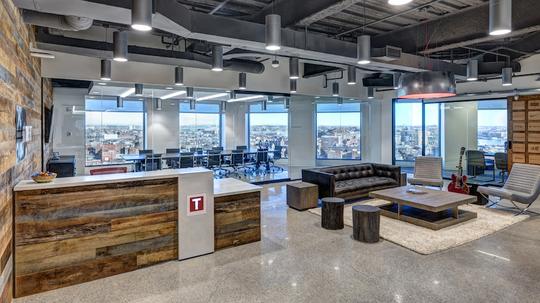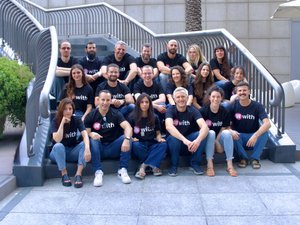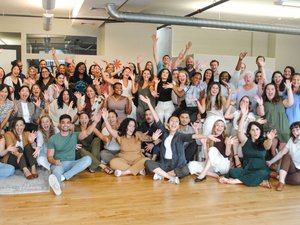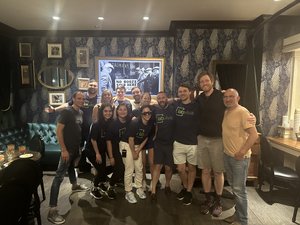
True Fit, a Boston-based startup, has figured out how to use artificial intelligence to help people find footwear and apparel online that fit properly. Now, with more than 200 retail customers, including Macy's, Nordstrom and Ralph Lauren, the company is venturing into the world of AI-powered fashion discovery with the help of a large new funding round.
The company announced on Monday that it has raised a $55 million Series C round led by Georgian Partners, an Ontario-based growth equity firm that focuses on AI, conversational interfaces and cybersecurity. The round, which brings the company's total funding to $95 million, also included participation from existing investors Jump Capital, Signal Peak Ventures, Intel Capital, and new investor Cross Creek Capital.
Bill Adler, CEO at True Fit, told BostInno that the company's footwear and apparel personalization platform now has 56 million registered users, more than double the 20 million users it had when the company raised a $25 million Series B in July 2016. While he declined to disclose revenue, he said the company tripled its annual commercial bookings last year.
True Fit, which relocated its headquarters to Boston from Woburn last year, has 110 employees now and plans to expand to 155 this year, Adler said. With the new funding, the company plans to accelerate software development, build deeper integrations with other software solutions used by retailers and expand in new global markets, including Asia and South America.
"We're using AI to draw correlations between the preferences you care about and the attributes you care about."
Adler likened the company's discovery engine, which will become available in March, to Spotify's song recommendation abilities, saying that True Fit's algorithms can dig down into what people prefer in footwear and apparel on a granular level, ranging from what particular fabrics are used to how the button appears on a pair of pants. Adler said it only takes one transaction for the software to begin understanding your preferences.
"We're using AI to draw correlations between the preferences you care about and the attributes you care about, and that produces a score, and the higher the score, the [more likely] you are to buy it and keep it, versus return it," Adler said.
The system is based on more than $100 billion worth of anonymized transactions, Adler said, and it uses machine learning algorithms to improve its understanding of preferences.
"All of those relational computations continue to get better and better and more refined with all the activity," Adler said.








